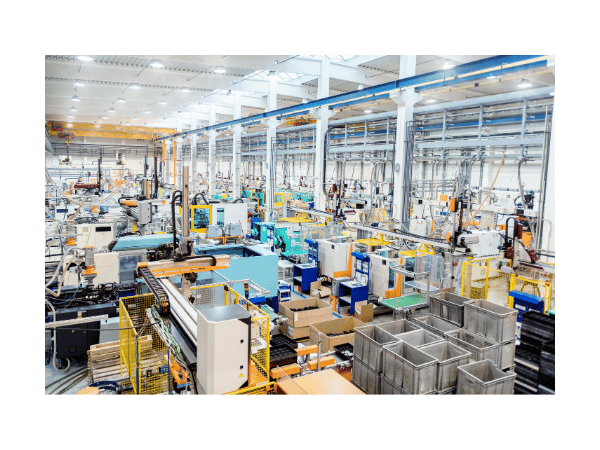The manufacturing industry is experiencing a profound transformation, defined by rapidly shifting paradigms and unprecedented challenges. From supply chain disruptions to soaring costs, and global conflicts, the industry finds itself in uncharted territory. In this dynamic landscape, resilience has evolved from being an asset to a bare necessity, crucial to survival and competitiveness.
The Imperative for Operational Efficiency
In the face of these challenges, the urgency to enhance operational efficiency has reached a crescendo. Yet, the pathway to achieving this involves navigating the complex terrain of technological advancements and fostering innovation. To ensure competitiveness in the age of the Fourth Industrial Revolution and next-generation manufacturing, organizations need to invest heavily in upskilling and reskilling their workforce.
The core principles of connection, communication, and automation form the bedrock of this transformation. By adopting these principles, organizations can harness the transformative potential of data, connectivity, and intelligence and, thereby, pivot to more efficient and robust business models.
Decoding Next-Generation Manufacturing
The realm of next-generation manufacturing presents a radical reimagination of products and services, spanning their entire lifecycle from design and engineering to manufacturing and support. It operates on the synergy of boundless data, cutting-edge operational technology, and a workforce that's skilled to make the most of these tools.
Three essential layers constitute the next-gen manufacturing technology landscape:
Digital Twins: The concept of 'Digital Twins' involves creating digital replicas of physical systems using factory data, enabling predictive maintenance and process optimisation.
AI and Analytics: AI and analytics tools process large volumes of data to extract actionable insights. This requires an upskilled workforce proficient in handling these technologies.
Robotics: Investments in robotics and automation technologies can significantly boost productivity and efficiency with a human touch to supervise and manage.
Central to this transformation is the shift towards cloud-based solutions, prominently through platforms like Oracle Cloud and the effective use of IoT sensors. These technologies empower staff to identify efficiency gains, perform proactive machine servicing, and resolve operational bottlenecks in real-time.
The Upskilling Imperative in a Data-Led Workforce
The integration of more tech-centric tools necessitates the recruitment of digital specialists, prompting a shift from a production-centric approach to a data-centric perspective. Yet, finding qualified digital specialists is a major hurdle due to their short supply.
In response, organizations are increasingly focusing on reskilling their existing workforce. This approach serves a dual purpose – it helps bridge the skills gap and fosters employee loyalty and retention. From algorithm development for ML and AI to solution consultancy for sales and marketing, reskilling programs cover a wide range of expertise.
Platforms like Oracle Cloud HCM enable organizations to manage these reskilling initiatives effectively, offering a suite of tools to identify skill gaps and deliver targeted training programs.
Future-Proofing Manufacturing: A Strategic Imperative
In order to thrive in the face of continuous change, manufacturers must focus on future-proofing their operations. This involves adopting effective strategies for continuous improvement and training facilitated by platforms like Oracle Cloud HCM, which can identify areas for improvement and streamline employee learning and development.
With the power of Oracle Cloud HCM, manufacturers can manage their human capital more effectively. By centralizing HR functions, organizations can better identify potential internal candidates for reskilling, optimize recruitment processes, and create a more agile and adaptable workforce.
FAQs
Q1: How is the manufacturing industry transforming?
A1: The manufacturing industry is transitioning towards a more data-centric, automated, and efficient model facilitated by technologies like AI, IoT, and cloud-based platforms like Oracle Cloud.
Q2: What technologies are central to next-generation manufacturing?
A2: The primary technologies include digital twins, AI and analytics, robotics, IoT sensors, and cloud-based solutions like Oracle HCM, all of which work in conjunction to streamline operations and improve efficiency.
Q3: Why are upskilling and reskilling critical in the manufacturing industry?
A3: As the manufacturing sector increasingly relies on advanced technologies, it is crucial for the workforce to acquire the necessary skills to utilize these technologies effectively. Platforms like Oracle Cloud HCM can help identify skill gaps and deliver targeted training programs, fostering an adaptable and skilled workforce.
Q4: What does future-proofing in manufacturing involve?
A4: Future-proofing involves creating a resilient and adaptable organization that can navigate future challenges. This includes investing in technology to improve operational efficiency, using platforms like Oracle Cloud HCM to manage human resources effectively, and upskilling and reskilling the workforce to meet the demands of changing industry landscapes.
Conclusion
In conclusion, the future of the manufacturing industry lies at the intersection of technological innovation and human skills development. Organizations that can successfully balance these elements, leveraging platforms like Oracle Cloud HCM to manage their human resources, will be well-equipped to thrive in the era of next-generation manufacturing.
Want to learn more about Oracle Cloud and Manufacturing? Share your details and we will contact you directly.

